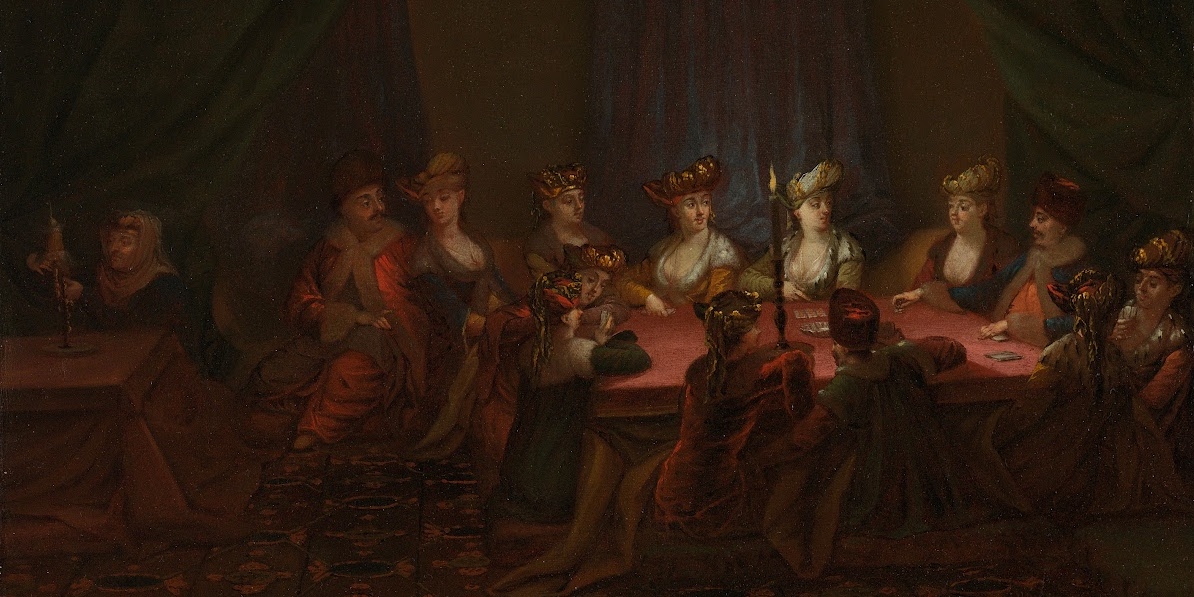Alevis in Ottoman Anatolia
with Ayfer Karakaya-Stump
hosted by Chris Gratien
The history of Anatolia's Alevi or Kizilbash community has long been written by outsiders who have variously portrayed them as mysterious, heretical, heterodox, or uncivilized. Alevism has been often juxtaposed with the high religion would-be orthodox Sunni practice. This historical understanding of Alevis has continued to influence the way these communities are represented in the present. In this episode, Ayfer Karakaya-Stump challenges this binary. Drawing on previously unexamined sources produced by the Ottoman Alevi community itself, she seeks a new road to understanding Alevism and the relationship of Alevi communities with the Ottoman and Safavid states, Sufi movements of the time, and the communities that surrounded them.
 |
Ayfer Karakaya-Stump is Assistant Professor of History at the College of William & Mary (faculty page) |
 | Chris Gratien is a doctoral candidate at Georgetown University researching the social and environmental history of the Ottoman Empire and the modern Middle East. (see academia.edu) |
Episode No. 148
Release Date: 8 March 2014
Location: Beyoğlu, Istanbul
Editing and Production: Chris Gratien
Bibliography courtesy of Ayfer Karakaya-Stump
Listeners might also like:
#117 Sufism and Society | John Curry
#093 Tedirgin Anadolu | Taylan Akyıldırım
#037 Zazaki and Zazas in Turkey | Chris Gratien
Citation: "Beyond Heterodoxy: Kizilbash/Alevis in Ottoman Anatolia," Ayfer Karakaya-Stump and Chris Gratien, Ottoman History Podcast, No. 148 (8 March 2014) http://www.ottomanhistorypodcast.com/2014/03/alevi-kizilbash-history.html.
Ayfer Karakaya-Stump, “The Wafā‘iyya, the Bektashiyye and Genealogies of ‘Heterodox’ Islam in Anatolia: Rethinking the Köprülü Paradigm.” Turcica (44) 2012-2013: 279-300.
__________, “The Forgotten Dervishes: The Bektashi Convents in Iraq and their Kizilbash Clients.” International Journal of Turkish Studies 16, no. 1&2 (2011): 1-24.
_________, “Documents and Buyruk Manuscripts in the Private Archives of Alevi Dede Families: An Overview.” British Journal of Middle Eastern Studies 37, no. 3 (Dec. 2010): 273-286.
_________, “The Emergence of the Kızılbaş in Western Thought: Missionary Accounts and Their Aftermath,” in David Shankland (ed.), Archaeology, Anthropology and Heritage in the Balkans and Anatolia: The Life and Times of F.W. Hasluck 1878-1920. Vol. 2, pp. 329-353. Istanbul: Isis Press, 2004.
Ahmet T. Karamustafa “Yesevîlik, Melâmetîlik, Kalenderîlik, Vefâʾîlik ve Anadolu Tasavvufunun Kökenleri Sorunu.” In Osmanlı Toplumunda Tasavvuf ve Sufiler: Kaynaklar-Doktrin-Ayin ve Erkan-Tarikatlar-Edebiyat-Mimari-İkonografi-Modernizm, edited by Ahmed Yaşar Ocak, 61-88. Ankara: Türk Tarih Kurumu, 2005.
------------. God’s Unruly Friends: Dervish Groups in the Islamic Later Middle Period 1200-1550. Salt Lake City: University of Utah Press, 1994.
Abdülbaki Gölpınarlı, “İslam ve Türk İllerinde Fütüvvet Teşkilâtı ve Kaynakları.” İstanbul Üniversitesi İktisat Fakültesi Mecmuası 11, no. 1-4 (October 1949-July 1950).
Derin Terzioğlu, "How to Conceptualize Ottoman Sunnitization: A Historiographical Discussion," Turcica (44) 2012-2013.
Mazzaoui, Michel M. The Origins of the Ṣafawids: Šī ‘ism, Ṣūfism, and the Ġulāt. Wiesbaden: Franz Steiner Verlag, 1972.
Zeynep Yürekli, Architecture and Hagiography in the Ottoman Empire: The Politics of Bektashi Shrines in the Classical Age, University of Oxford, 2012.











Comments
Post a Comment
Due to an overwhelming amount of spam, we no longer read comments submitted to the blog.